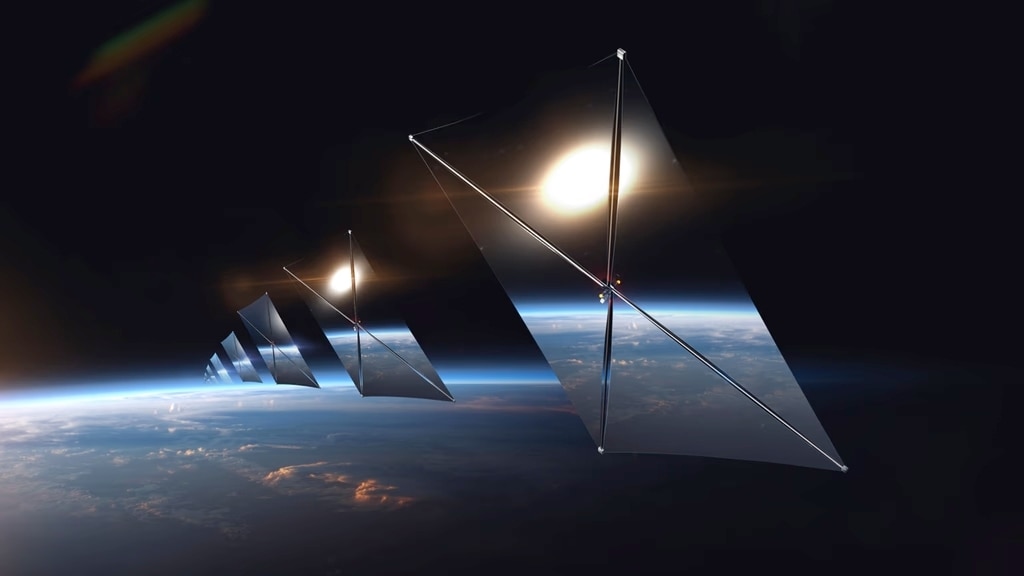
Reflect Orbital tested its concept by fitting mylar mirrors on a hot air balloon that reflected sunlight on a moving truck. (Image Credit: Reflect Orbital)
Fly by night, conceptual, viral, whatever the case may be, this idea is inspiring. It's something that might not have popped into mind could even be possible. That is what we engineers do, alot. Form ideas. Seeing them through is another miracle.
Reflect Orbital proposed a new, profitable way to boost power generation: selling sunlight after darkness falls. This innovative technique would use satellites to reflect sunlight to the Earth’s surface, potentially lighting up the night sky. Ben Nowack, Reflect Orbital CEO, unveiled this concept at the International Conference on Energy from Space in April.
Nowack’s idea is based on launching 57 earth-orbiting satellites equipped with 33 sq ft. ultra-reflective mylar mirrors that reflect sunlight onto ground-based solar farms. This means Reflect Orbital could sell sunlight to solar power plants, giving them an extra 30 minutes during peak times. That energy would then be sent to customer’s homes.
The team tested this idea by placing an 8x8 foot mylar mirror on a hot air balloon that reflected sunlight on solar panels attached to a moving truck. It took them a few weeks of fine-tuning before achieving a breakthrough. The mirror reflected light from 242 meters away onto the solar panels that produced 500W of power/square meters of panel. One team member also moved the panels away from direct sunlight, verifying the achievement. Reflect Orbital projections say that energy generation significantly decreased after the panels were moved.

(Image Credit: Reflect Orbital)
Although solar power generation is more affordable, it still has some inconsistencies, making widespread adoption challenging as a renewable source.
Sunlight can also be blocked by thick clouds and stormy weather, affecting solar power generation. Seasonal changes also indicate how much sunlight covers certain regions. Even though the equator receives more sunlight year-round, the north and south hemispheres see a drastic decrease in daytime hours during winter — caused by Earth’s 23.5-degree axial tilt.
The startup hopes its mirror-equipped satellites can overcome those obstacles by beaming sunlight anywhere on Earth. Russia tested something similar during the late 1980s and early 1990s via the Znamya project. It involved building a satellite fitted with mylar mirrors to reflect sunlight effectively. However, Russian scientists couldn’t replicate that success after the Soviet Union’s fall due to the high cost of launching satellites into orbit at the time.
Reflect Orbital’s next move involves launching a prototype satellite in 2025 now that its mirrors can boost solar plant’s efficiency.
Have a story tip? Message me at: http://twitter.com/Cabe_Atwell

Top Comments
-

DAB
-
Cancel
-
Vote Up
0
Vote Down
-
-
Sign in to reply
-
More
-
Cancel
-

Jan Cumps
in reply to DAB
-
Cancel
-
Vote Up
0
Vote Down
-
-
Sign in to reply
-
More
-
Cancel
-

DAB
in reply to Jan Cumps
-
Cancel
-
Vote Up
+1
Vote Down
-
-
Sign in to reply
-
More
-
Cancel
Comment-

DAB
in reply to Jan Cumps
-
Cancel
-
Vote Up
+1
Vote Down
-
-
Sign in to reply
-
More
-
Cancel
Children